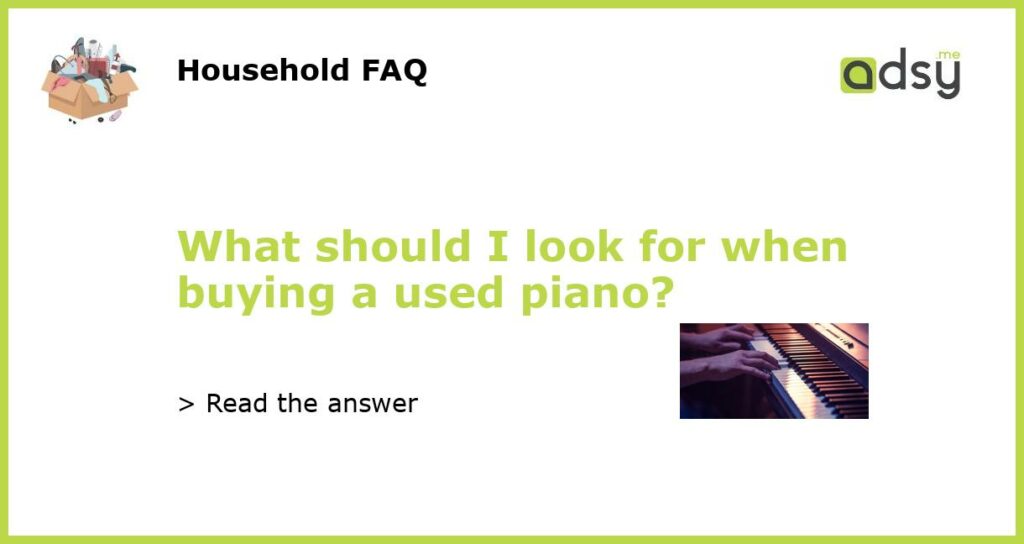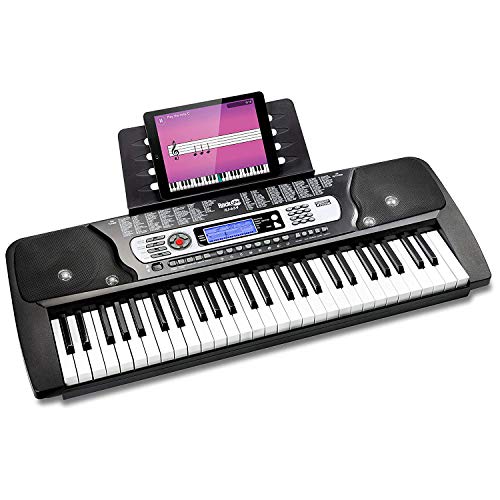Assessing the Condition of the Piano
One of the most important factors to consider when buying a used piano is its condition. The overall condition of the piano will determine its playability, sound quality, and lifespan. Here are a few things to look for when assessing the condition of a used piano:
- Exterior appearance: Check for any scratches, dents, or signs of wear and tear on the cabinet. These cosmetic issues might not affect the piano’s performance but can indicate how well it has been maintained.
- Keys: Inspect the keys for any damage, such as chips or cracks. Press each key to make sure they all respond smoothly and evenly.
- Strings: Look for any frayed or broken strings. While a few broken strings can be replaced, too many damaged strings may indicate a significant issue with the piano.
- Pedals: Test the pedals to ensure they are functioning correctly. The sustain pedal, for example, should sustain the sound when pressed, and the soft pedal should create a muffled tone.
- Sound: Play a few notes and listen carefully to the sound quality. The tone should be even across all octaves and free from any buzzing or rattling noises.
Age and History of the Piano
The age and history of a used piano can provide valuable insights into its condition and performance. Understanding the piano’s background can help you determine if it has been well-maintained and if any major repairs or renovations have been done. Here’s what to consider:
- Age: The age of a piano can directly impact its condition and value. Older pianos may require more frequent repairs and maintenance, while newer ones may have modern features and improved mechanisms. However, well-maintained vintage pianos can still offer exceptional quality.
- Previous owners: Try to gather information about the piano’s previous owners. Were they professional musicians or beginners? Was the piano used in concerts or primarily for practice? Pianos used by professional musicians or in public performances tend to receive more regular maintenance.
- Tuning history: Inquire about the piano’s tuning history. Regular tuning is essential for maintaining the piano’s performance and preventing potential damage due to fluctuations in temperature and humidity.
- Service records: If available, ask for any service records or documentation of repairs and maintenance. This information can give you an idea of how well the piano has been cared for and if any major components have been replaced.
Seeking Professional Advice
When buying a used piano, it’s highly recommended to seek professional advice. A piano technician or an experienced piano dealer can offer valuable expertise and help you make an informed decision. Here’s why professional advice is crucial:
- Inspection: A professional technician can thoroughly inspect the piano and identify any hidden issues or potential problems. They have the knowledge and experience to assess the piano’s condition accurately.
- Appraisal: A piano technician or dealer can provide an accurate appraisal of the piano’s value based on its condition, age, brand, and market demand. This information ensures you are paying a fair price.
- Recommendations: Professionals can provide recommendations based on your needs and preferences. They can guide you towards pianos that suit your skill level, musical style, and budget.
- Referrals: Professionals in the piano industry often have connections and networks. They can refer you to trusted sellers or sources for used pianos, increasing the likelihood of finding a reliable instrument.
Researching the Brand and Model
The brand and model of a used piano can significantly impact its quality, resale value, and performance. It’s essential to research and familiarize yourself with different piano brands and models before making a purchase. Consider the following:
- Reputation: Research the reputation of the piano brand. Brands with a long-standing history and positive reputation in the industry are more likely to produce high-quality instruments.
- Reviews: Read reviews from other piano owners and musicians who have experience with the specific brand and model you’re interested in. Their feedback can provide valuable insights into the piano’s performance, durability, and overall satisfaction.
- Availability of parts and repairs: Ensure that the brand and model you choose have readily available parts and qualified technicians for repairs and maintenance. This ensures that you won’t face difficulties in case the piano needs servicing or replacement parts in the future.
- Price range: Different piano brands and models come with varying price ranges. Determine your budget and explore options within that range. Keep in mind that high-quality used pianos from reputable brands may still be more expensive than lesser-known brands.
Playability and Personal Preference
Ultimately, the playability and personal preference should guide your decision when buying a used piano. A piano that feels comfortable to play, produces a sound you enjoy, and suits your musical style will ultimately provide the most satisfaction. Consider the following:
- Action and responsiveness: Test the piano’s action, which refers to the feel and responsiveness of the keys. Some pianos have heavier or lighter actions, and it’s important to find one that matches your playing style.
- Tone and sound quality: The tone and sound quality of the piano should align with your musical preferences. Play different notes and chords to assess the richness and clarity of the sound.
- Touch and feel: Pay attention to how the keys feel under your fingers. Some pianos have a more responsive touch, while others may feel stiffer or less sensitive.
- Musical style: Consider the genre or style of music you primarily play. Certain piano brands or models may be better suited for classical music, jazz, or pop, depending on the sound characteristics they offer.
- Long-term goals: Think about your long-term goals as a pianist. If you’re a beginner, a used piano in good condition may be suitable for practice. However, if you’re an advanced pianist or plan to pursue professional opportunities, investing in a higher-quality instrument may be advisable.






